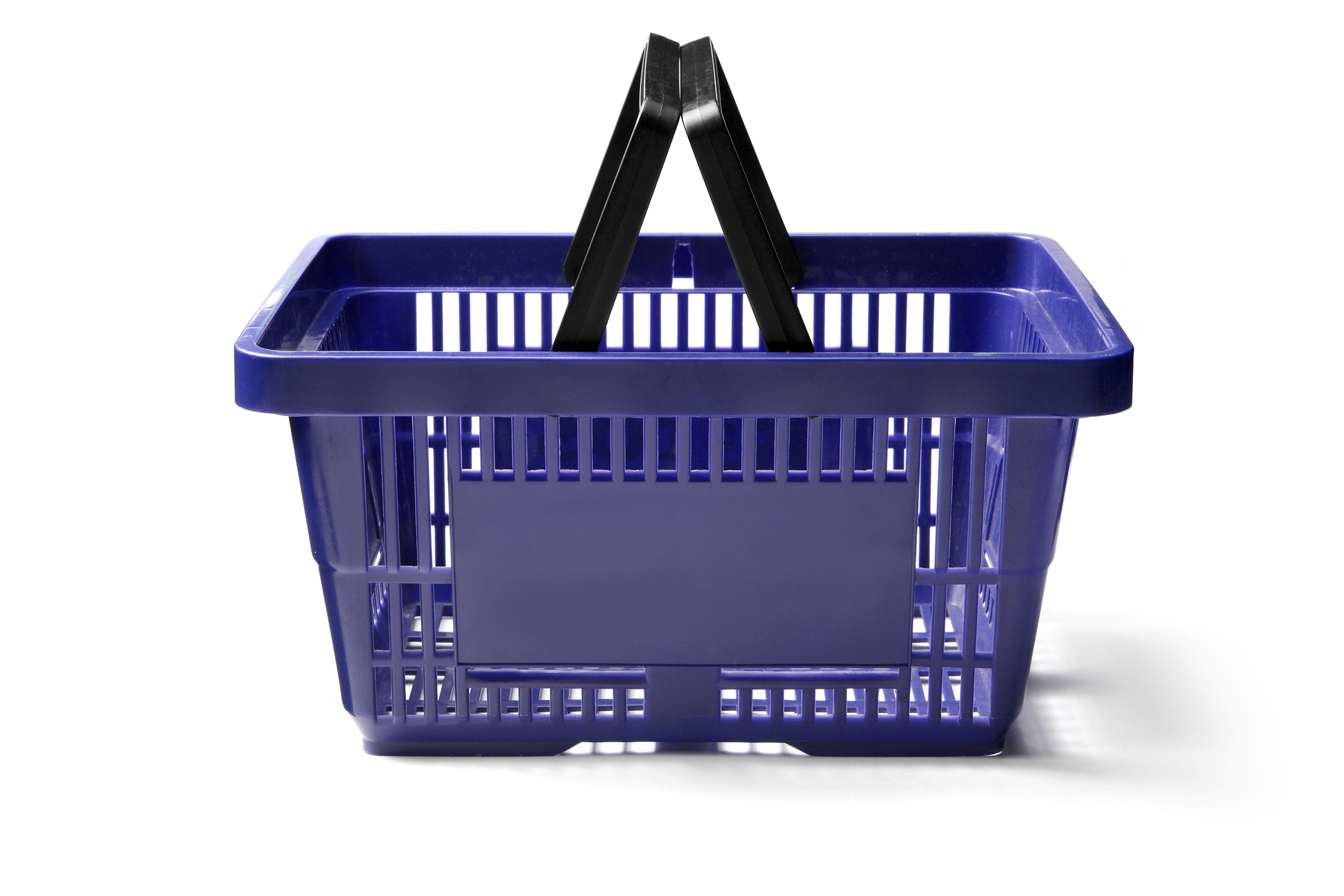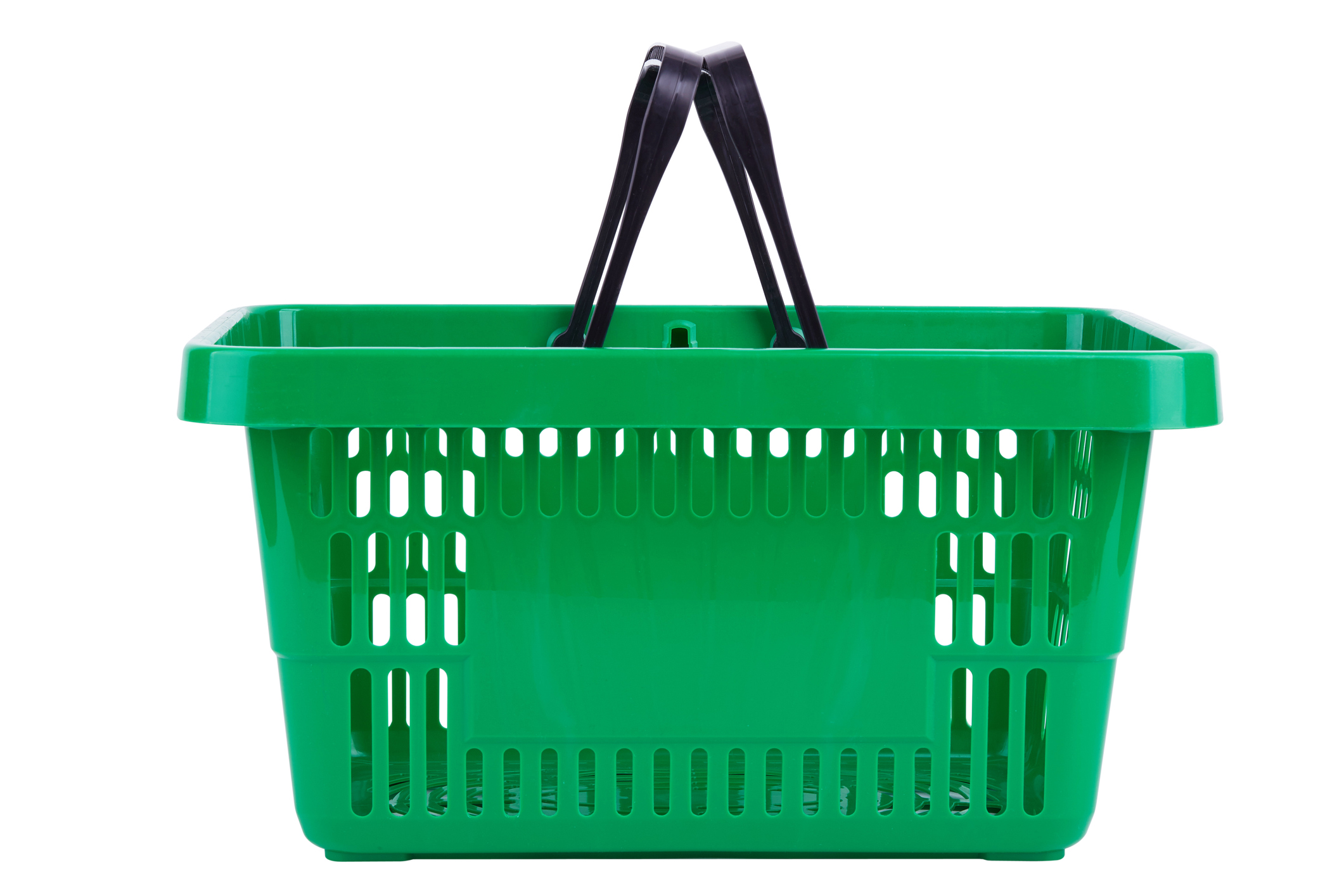Ten States with the Lowest Sales Tax in 2025
Living in one of the lowest sales tax states doesn't always mean you'll pay less.

Gabriella Cruz-Martínez

Profit and prosper with the best of Kiplinger's advice on investing, taxes, retirement, personal finance and much more. Delivered daily. Enter your email in the box and click Sign Me Up.
You are now subscribed
Your newsletter sign-up was successful
Want to add more newsletters?

Delivered daily
Kiplinger Today
Profit and prosper with the best of Kiplinger's advice on investing, taxes, retirement, personal finance and much more delivered daily. Smart money moves start here.

Sent five days a week
Kiplinger A Step Ahead
Get practical help to make better financial decisions in your everyday life, from spending to savings on top deals.

Delivered daily
Kiplinger Closing Bell
Get today's biggest financial and investing headlines delivered to your inbox every day the U.S. stock market is open.

Sent twice a week
Kiplinger Adviser Intel
Financial pros across the country share best practices and fresh tactics to preserve and grow your wealth.

Delivered weekly
Kiplinger Tax Tips
Trim your federal and state tax bills with practical tax-planning and tax-cutting strategies.

Sent twice a week
Kiplinger Retirement Tips
Your twice-a-week guide to planning and enjoying a financially secure and richly rewarding retirement

Sent bimonthly.
Kiplinger Adviser Angle
Insights for advisers, wealth managers and other financial professionals.

Sent twice a week
Kiplinger Investing Weekly
Your twice-a-week roundup of promising stocks, funds, companies and industries you should consider, ones you should avoid, and why.

Sent weekly for six weeks
Kiplinger Invest for Retirement
Your step-by-step six-part series on how to invest for retirement, from devising a successful strategy to exactly which investments to choose.
Shopping in one of the states with the lowest sales tax rates can mean saving money.
However, the amount you can save depends on where in the state you shop and what you buy. That's because some localities impose sales tax rates of their own, and items that are taxable in some states might not be taxable in others.
A sales tax is typically applied to retail goods and services, and some states offer exemptions for groceries and prescription medications. This tax serves as a revenue source, and local jurisdictions may add their own tax rates to fund public services like roads, schools, and local emergency departments.
From just $107.88 $24.99 for Kiplinger Personal Finance
Become a smarter, better informed investor. Subscribe from just $107.88 $24.99, plus get up to 4 Special Issues

Sign up for Kiplinger’s Free Newsletters
Profit and prosper with the best of expert advice on investing, taxes, retirement, personal finance and more - straight to your e-mail.
Profit and prosper with the best of expert advice - straight to your e-mail.
That being said, let’s dive into our list of the 10 states with the lowest sales taxes.
Lowest sales tax states in the U.S.
Keep in mind that localities (cities and counties) in some states can add sales tax separate from the statewide tax rate. Rankings for states with the lowest sales tax are based on the average combined local and state tax rates.
Note: The sales tax rates used in this story are based on 2025 data from the Tax Foundation. This list does not include the four reported states with no sales tax or average combined local taxes.
Washington, D.C., sales tax

State sales tax: 6%
Average local sales tax: 0%
Average combined sales tax: 6%
The District of Columbia makes this list, thanks to the lack of local sales taxes. Shoppers in D.C. will pay a 6% sales tax rate regardless of which part of the district they shop in.
Other good things to know about D.C. sales tax:
- Groceries and prescription drugs are tax-exempt.
- Some items in Washington, D.C., such as restaurant meals and vehicle rentals, are taxed at a rate higher than 6%.
Maryland sales tax

State sales tax: 6%
Average local sales tax: 0%
Average combined sales tax: 6%
One nice thing about tax in Maryland is that you can travel anywhere in the state and not worry about paying a different sales tax rate. It’s 6% everywhere, as counties and cities don't levy their own taxes. Your groceries and prescription drugs aren’t taxable, but you’ll need to pay the 6% tax on clothing and motor vehicle purchases.
Other good things to know about Maryland sales tax:
- Alcoholic beverages are taxed from 9 cents to $1.50 per gallon in Maryland.
- Vacationers could face higher sales taxes, as short-term rental cars are taxed at 11.5%.
Kentucky sales tax

State sales tax: 6%
Average local sales tax: 0%
Average combined sales tax: 6%
With a 6% average combined sales tax rate, Kentucky sales tax ties with three other places on this list. You won’t need to pay any sales tax on groceries or prescription drugs. However, you will pay sales tax when you make motor vehicle and clothing purchases, but that is the case for most U.S. states.
Other good things to know about Kentucky sales tax:
- Last year, three new categories became subject to sales tax. These include jewelry repair, private investigating, even parking.
- On the bright side, Kentucky income tax was slashed from 4.5% to 4% for the 2024 tax year.
Michigan sales tax

State sales tax: 6%
Average local sales tax: 0%
Average combined sales tax: 6%
Michigan is another state with a 6% sales tax rate. However, residential customers can save slightly on utilities. The Michigan sales tax is lower for certain home energy necessities, such as electricity, natural gas, and home heating oil, which are taxed at 4%.
Other good things to know about Michigan sales tax:
- The statewide sales tax rate hasn't changed in nearly 30 years.
- Groceries and prescription drugs are tax-exempt.
- Clothing and motor vehicle purchases are taxable.
Virginia sales tax

State sales tax: 5.3%
Average local sales tax: 0.47%
Average combined sales tax: 5.77%
Virginia repealed its portion of sales tax on groceries, but a 1% local grocery tax applies in most areas. Local sales tax on everything else can reach as high as 2.7% in some parts of the Commonwealth, meaning that some Virginians pay a 5.77% tax rate on fully taxable items.
Other good things to know about Virginia sales tax:
- Personal hygiene products (including diapers) are taxable but at a reduced rate of 1%.
- Prescriptions are tax-exempt.
- There is no sales tax on over-the-counter medication.
- You'll need to pay Virginia sales tax on clothing.
Wisconsin sales tax

State sales tax: 5%
Average local sales tax: 0.72%
Average combined sales tax: 5.72%
The sales tax rate in some parts of Wisconsin are higher than they were last year due to Milwaukee's sales tax increases. But prescription drugs are tax-exempt statewide. You won’t pay Wisconsin sales tax on groceries, either.
Other good things to know about Wisconsin sales tax:
- The state put an end to sales tax on groceries 17 years ago.
- Wisconsin hasn’t repealed its tax on motor vehicles or clothing, so you’ll still pay state and local tax on these purchases.
Wyoming

State sales tax: 4%
Average local sales tax: 1.56%
Average combined sales tax rate: 5.56%
Wyoming ranks as the state with the fourth-lowest sales tax rate in the country. The Cowboy State imposes a 4% sales tax on most purchases across its 23 counties. However, there’s good news: Groceries and prescription drugs are exempt from the tax. Localities may impose an additional sales tax, but it cannot exceed 3%.
Other good things to know about Wyoming:
- The maximum local tax rate is 3%.
- Groceries and prescription drugs are exempt from the state’s sales tax.
- Wyoming nearly made our list for states with the lowest gasoline tax rates at just 24 cents per gallon.
Maine sales tax

State sales tax: 5.5%
Average local sales tax: 0%
Average combined sales tax: 5.5%
Grocery staples are tax-exempt in Maine, but the state doesn’t include some healthy snacks such as seeds or dried fruit as staples, so you’ll need to pay Maine sales tax on those. Even though Maine doesn't impose sales tax on most fruits, there is a tax on wild blueberries; those processed in the state come with a tax rate of 1½ cents per pound.
Other good things to know about Maine:
- Maine's low sales tax outperforms many Northeastern states, according to the Tax Foundation.
- As of January 1, 2025, all 501(c)(3) nonprofit organizations in Maine are exempt from sales tax for mission-related purchases.
- Before making exempt purchases, qualifying organizations must apply for and receive an exemption certificate from Maine Revenue Services.
Hawaii sales tax

State sales tax: 4%
Average local sales tax: 0.5
Average combined sales tax: 4.5%
Hawaii has a complex sales tax system with many different levels (county, city, transportation, and special purpose districts).
The Aloha doesn't technically have a sales tax, but it does levy an excise tax, which is passed to consumers and reflected in retail prices. The tax also applies to groceries, putting Hawaii among the states with the highest food tax in the country.
To offset some grocery costs, locals may be able to claim a grocery tax credit.
Other good things to know about Hawaii:
- Prescription drugs are not taxable.
- You still need to pay tax on over-the-counter medications.
- Clothing and motor vehicle purchases are taxable.
Alaska sales tax

State sales tax: 0%
Average local sales tax: 1.82%
Average combined sales tax: 1.82%
There is currently no state sales tax in Alaska. However, localities in the state can impose their own sales taxes, and the average local sales tax rate in Alaska has increased from 1.76% to 1.82% in the last year.
Although the average combined sales tax rate in Alaska is the lowest in the country, localities may impose a maximum tax rate of 7.85%. That's something to keep in mind while shopping.
Other good things to know about Alaska sales tax:
- Groceries are subject to local sales taxes.
- As mentioned, localities may impose a sales tax rate as high as 7.85%. This may impact tax on groceries.
Related Content
Profit and prosper with the best of Kiplinger's advice on investing, taxes, retirement, personal finance and much more. Delivered daily. Enter your email in the box and click Sign Me Up.

Katelyn has more than 6 years of experience working in tax and finance. While she specialized in tax content while working at Kiplinger from 2023 to 2024, Katelyn has also written for digital publications on topics including insurance, retirement, and financial planning and had financial advice commissioned by national print publications. She believes knowledge is the key to success and enjoys providing content that educates and informs.
- Gabriella Cruz-MartínezTax Writer
-
 Quiz: Do You Know How to Avoid the "Medigap Trap?"
Quiz: Do You Know How to Avoid the "Medigap Trap?"Quiz Test your basic knowledge of the "Medigap Trap" in our quick quiz.
-
 5 Top Tax-Efficient Mutual Funds for Smarter Investing
5 Top Tax-Efficient Mutual Funds for Smarter InvestingMutual funds are many things, but "tax-friendly" usually isn't one of them. These are the exceptions.
-
 AI Sparks Existential Crisis for Software Stocks
AI Sparks Existential Crisis for Software StocksThe Kiplinger Letter Fears that SaaS subscription software could be rendered obsolete by artificial intelligence make investors jittery.
-
 How to Open Your Kid's $1,000 Trump Account
How to Open Your Kid's $1,000 Trump AccountTax Breaks Filing income taxes in 2026? You won't want to miss Form 4547 to claim a $1,000 Trump Account for your child.
-
 In Arkansas and Illinois, Groceries Just Got Cheaper, But Not By Much
In Arkansas and Illinois, Groceries Just Got Cheaper, But Not By MuchFood Prices Arkansas and Illinois are the most recent states to repeal sales tax on groceries. Will it really help shoppers with their food bills?
-
 7 Bad Tax Habits to Kick Right Now
7 Bad Tax Habits to Kick Right NowTax Tips Ditch these seven common habits to sidestep IRS red flags for a smoother, faster 2026 income tax filing.
-
 10 Cheapest Places to Live in Colorado
10 Cheapest Places to Live in ColoradoProperty Tax Looking for a cozy cabin near the slopes? These Colorado counties combine reasonable house prices with the state's lowest property tax bills.
-
 New Gambling Tax Rule Impacts Super Bowl 2026 Bets
New Gambling Tax Rule Impacts Super Bowl 2026 BetsTaxable Income When Super Bowl LX hype fades, some fans may be surprised to learn that sports betting tax rules have shifted.
-
 Should You Do Your Own Taxes This Year or Hire a Pro?
Should You Do Your Own Taxes This Year or Hire a Pro?Taxes Doing your own taxes isn’t easy, and hiring a tax pro isn’t cheap. Here’s a guide to help you figure out whether to tackle the job on your own or hire a professional.
-
 Can I Deduct My Pet On My Taxes?
Can I Deduct My Pet On My Taxes?Tax Deductions Your cat isn't a dependent, but your guard dog might be a business expense. Here are the IRS rules for pet-related tax deductions in 2026.
-
 Don't Overpay the IRS: 6 Tax Mistakes That Could Be Raising Your Bill
Don't Overpay the IRS: 6 Tax Mistakes That Could Be Raising Your BillTax Tips Is your income tax bill bigger than expected? Here's how you should prepare for next year.